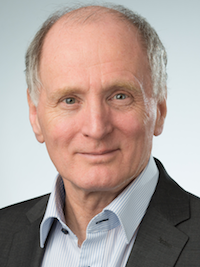 The emergence of Openreach as a separate legal entity may be long overdue for Gamma CEO Bob Falconer (pictured) but he nevertheless strongly welcomes the news.
The emergence of Openreach as a separate legal entity may be long overdue for Gamma CEO Bob Falconer (pictured) but he nevertheless strongly welcomes the news.
"I agree with Ofcom CEO Sharon White that legal separation should produce results far more quickly than a full structural separation," he said. "It gives the CEO and Board of Openreach a clear remit to get on with the job and not be distracted by BT Group requirements for cash or favour. All very welcome."
Chair of ITSPA Eli Katz agrees that this is the right move at the right time and should satisfy the competition concerns that were raised within the Digital Communications Review.
"Legal separation, rather than a more time-consuming and complicated structural separation, is the right approach and should deliver significant improvements with relatively little disruption," he said.
"The focus now for Ofcom must be to set up this new structure as quickly as possible and to then closely monitor its performance to ensure Openreach provides the necessary support to industry in order to meet the ever increasing demand for high quality communication services."
 According to Lorrin White (pictured left), MD, Bamboo Technology Group, it is the responsibility of network providers to work together with peers and ensure the new independent Openreach delivers real improvements to the industry.
According to Lorrin White (pictured left), MD, Bamboo Technology Group, it is the responsibility of network providers to work together with peers and ensure the new independent Openreach delivers real improvements to the industry.
"Openreach must double down on fibre investment if the UK is to remain competitive - especially post-Brexit," she stated. "So we look forward to hearing more from Openreach on its investment strategy and working with it to achieve a better service for all."
For Mark Collins, Director Strategy & Policy at CityFibre, that means plugging the 'fibre gap'. "While it is welcome that these time consuming negotiations seem to be at an end, there is nothing in this announcement to suggest Openreach will now start to build the fibre infrastructure this country needs," he stated.
"Ofcom's focus needs to shift towards encouraging alternative fibre builders to do the things that Openreach can't or won't do, regardless of its legal status."
Whatever the nature of Openreach's investment decisions the company is 'better placed' to make them and deliver improvements, but under the sharp eye of the regulator, observed Dido Harding, CEO, TalkTalk Group.
"This deal will require robust Ofcom monitoring and enforcement to ensure it delivers the improvements the regulator expects," she stated.
"We hope this is the start of a new deal for Britain's broadband customers who will be keen to see a clear timetable from Openreach setting out when its services will improve."
Metronet UK CEO Lee Perkins recognises the improvements made by Openreach under the leadership of CEO Clive Selley but, like CityFibre's Mark Collins, he does not believe that legal separation goes far enough to bring about improvements to the UK's Internet infrastructure.
"There will always be a need for specialist providers to step in and fix the problems that the big providers don't fully understand," he said.
"This is a positive first step, but to create the open competition and choice that UK businesses really need we want to see a fully independent Openreach."
Against a backdrop of mixed reactions to today's news industry commentator Adrian Barnard applauded the regulator's chief exec for getting things done. "Under the leadership of Sharon White the regulator has been more active than for many years," he said.
"Now we must all act together and push Ofcom and the Government to help make UK PLC a better connected economy."

 The emergence of Openreach as a separate legal entity may be long overdue for Gamma CEO Bob Falconer (pictured) but he nevertheless strongly welcomes the news.
The emergence of Openreach as a separate legal entity may be long overdue for Gamma CEO Bob Falconer (pictured) but he nevertheless strongly welcomes the news. According to Lorrin White (pictured left), MD, Bamboo Technology Group, it is the responsibility of network providers to work together with peers and ensure the new independent Openreach delivers real improvements to the industry.
According to Lorrin White (pictured left), MD, Bamboo Technology Group, it is the responsibility of network providers to work together with peers and ensure the new independent Openreach delivers real improvements to the industry. One of the most important aspects of the BT-Ofcom deal to legally separate Openreach will be new insights into Openreach's accounts and the extent of its financial contribution to BT's overall Group figures, believes Adept Telecom CEO Ian Fishwick (pictured).
One of the most important aspects of the BT-Ofcom deal to legally separate Openreach will be new insights into Openreach's accounts and the extent of its financial contribution to BT's overall Group figures, believes Adept Telecom CEO Ian Fishwick (pictured). Responding to news that Ofcom and BT have got their heads together and come up with a deal to nudge Openreach into becoming a limited company, the Federation of Communication Services (FCS) has strongly emphasised the need to ensure that the newly constituted Openreach Board reflects the aspirations of all Openreach stakeholders and customers.
Responding to news that Ofcom and BT have got their heads together and come up with a deal to nudge Openreach into becoming a limited company, the Federation of Communication Services (FCS) has strongly emphasised the need to ensure that the newly constituted Openreach Board reflects the aspirations of all Openreach stakeholders and customers.